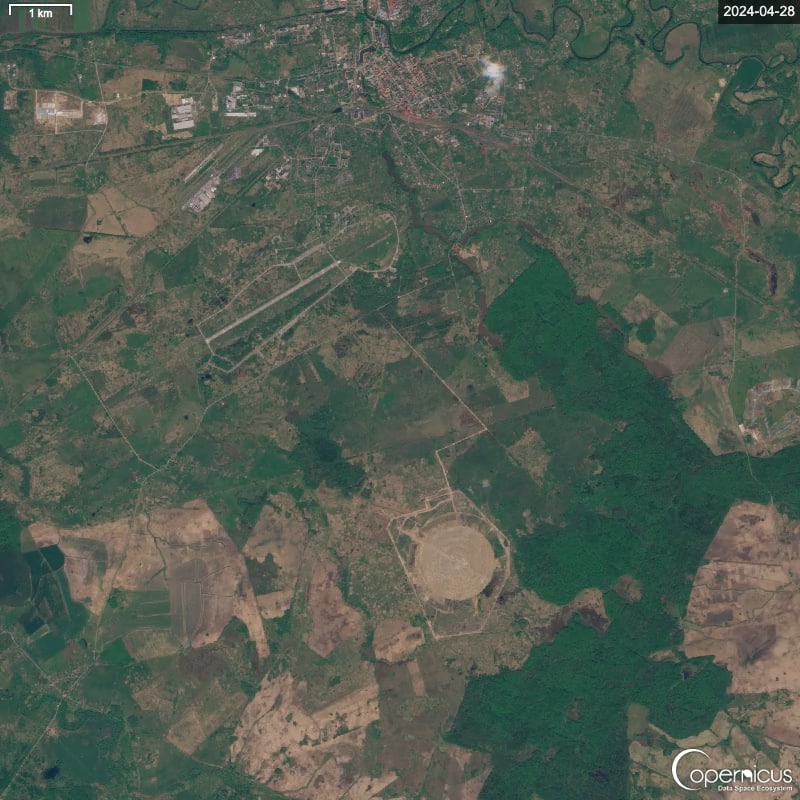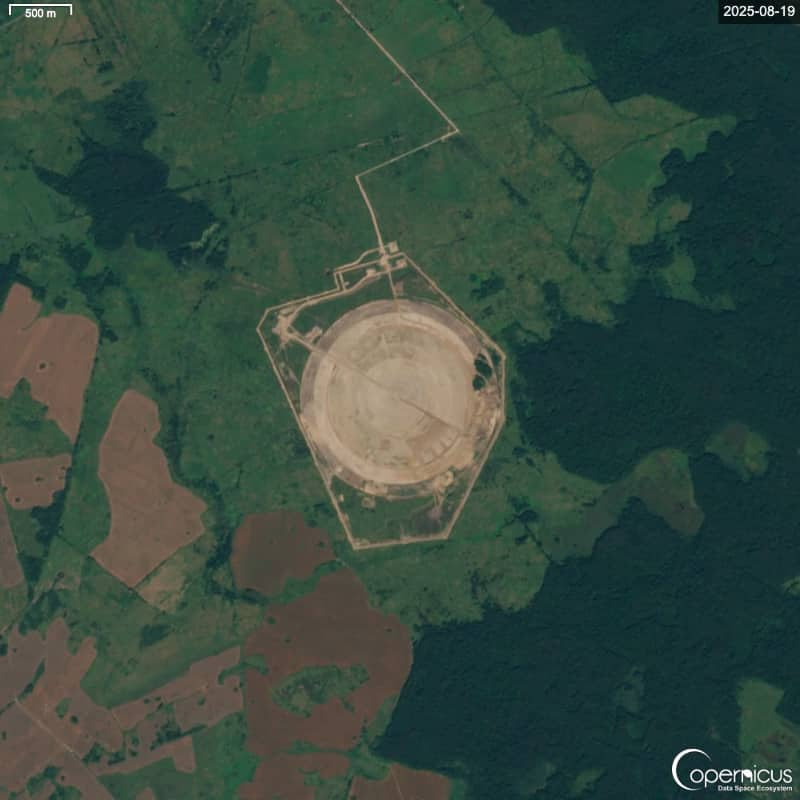



For two years, construction has been quietly unfolding in Kaliningrad, Russia’s heavily militarised outpost wedged between Poland and Lithuania. Now, open-source researchers say they have identified what looks like a Cold War-style listening station, one that could allow Moscow to eavesdrop on NATO forces across Eastern Europe.
According to Newsweek, the sprawling site in the Chernyakhovsky district first appeared in satellite images in March 2023 and is now nearing completion. Investigators from the independent project Tochnyi say the complex resembles a circularly disposed antenna array (CDAA), a massive structure designed for radio intelligence and submarine communications.
Why a CDAA matters
CDAA networks were once the backbone of U.S. and Soviet surveillance during the Cold War, used to track signals, intercept communications, and locate submarines.
If confirmed, the Kaliningrad facility would give Russia the ability to intercept NATO radio chatter, triangulate positions, and support naval operations in the Baltic and North Atlantic.
“To place such a structure in this region is strategically logical,” Tochnyi told Newsweek, pointing to Kaliningrad’s position as Moscow’s westernmost stronghold.
The evidence from space
Analysis of satellite imagery suggests the antenna array could span up to 1,600 meters in diameter, much larger than typical CDAA sites.

Researchers highlight several key features:
Concentric rings with evenly spaced excavation points that could host vertical antennas.
Radial patterns extending from a central hub, likely for underground cables.
A security perimeter with a checkpoint and boundary wall, completed by mid-August 2025.
Images also show large sections of forest cleared since 2023, with soil displacement consistent with antenna construction.

“These look like excavation points that could host poles, which can be used to support antennas,” Tochnyi said.
Kaliningrad’s strategic weight
Kaliningrad is already one of the most militarised regions in Europe, home to Russia’s Baltic Fleet and advanced missile systems.
A CDAA-like installation there would extend Moscow’s electronic warfare reach, enabling it to gather intelligence across NATO’s eastern flank. Analysts told Newsweek that such a facility would act as a bridge between Cold War-era tools and Russia’s modern doctrine of surveillance, deniability, and information dominance.
Global context: Trump-Putin talks stall
The revelation comes against the backdrop of heightened diplomatic manoeuvring. On August 15, Russian President Vladimir Putin met U.S. President Donald Trump at Joint Base Elmendorf-Richardson in Anchorage, his first visit to the U.S. in a decade.
Talks lasted more than two hours but ended without a breakthrough. “We haven’t quite got there, but we’ve got some headway,” Trump said at a joint appearance. “There’s no deal until there’s a deal.”
U.S. Special Envoy Steve Witkoff later told CNN that Putin indicated, for the first time, a willingness to consider a U.S. security guarantee for Ukraine similar to NATO’s Article 5.
But Russia’s foreign minister Sergey Lavrov struck a harder note, telling NBC News’ Meet the Press that no Putin-Zelensky summit is planned. “Putin is ready to meet with Zelensky when the agenda is ready for a summit, and this agenda is not ready at all,” he said.
Lavrov added that Washington’s conditions, including no NATO membership for Ukraine and negotiations on territorial issues, were flatly rejected by Kyiv.
Cold War echoes in a modern conflict
As the war in Ukraine drags on and diplomacy stalls, the Kaliningrad antenna project underscores a broader trend: Russia is investing heavily in intelligence and surveillance tools that harken back to Cold War strategies, but adapted to today’s conflicts.
“Tochnyi” researchers summed it up bluntly in comments to Newsweek: “This installation is likely a core node in Russia’s strategic signals intelligence and communications architecture. It represents a bridge between Cold War technology and modern military doctrine.”
Discover the latest Business News, Sensex, and Nifty updates. Obtain Personal Finance insights, tax queries, and expert opinions on Moneycontrol or download the Moneycontrol App to stay updated!
Find the best of Al News in one place, specially curated for you every weekend.
Stay on top of the latest tech trends and biggest startup news.